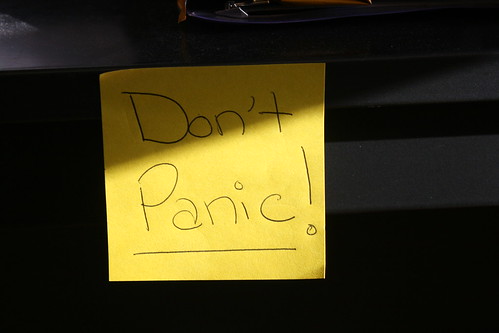6 Tips for Educating Yourself on How to Start Investing
So you want to be an investor? There are tools to aid you in becoming a successful investor through education and life experiences. And nope — you don't need a college degree. Here are six must have investment tips for beginners.
Plan, Don't Budget
Dr. Don Taylor of Bankrate.com tells investment newbies they should plan, not budget. Of course he's using a play on words here to help you plan habitually instead of "budgeting." As Dr. Taylor puts it, "…budgeting, like dieting, is a chore, while a spending plan has you choosing how to allocate your income."
People don't enjoy budgeting woes so instead, plan how much money you'll set aside for investments.
Learn from the Experts
Image via Wikimedia Commons
In the article Three Things I Learned from Fisher Investments, CEO Ken Fisher tells author Dr. Mark Skousen what he thinks about investing in gold:
"The odds are stacked against the gold bugs," and that "85 Percent of the time, gold goes down in price; only 15 percent of the time does gold go up." Now listed on theForbes 400 Richest People in America list, learning from investing experts like Fisher goes a long way. Read blogs, articles and books on how to invest smartly. In reality with all the investment apps and e-books out there today, you can even learn all you need to know — right from your sofa.
Check "Hope" at the Door
One of the first things you must learn before you begin investing is it's not a game of wishing or hope. You can hope you win the lottery or hope your favorite NFL team wins the Lombardi Trophy but you can't hope or will your investments to do well. The best thing you can do is research and plan ahead. Hope will not get you very far.
You Don't Need a College Degree

Image via Flickr by Claire P.
Education is important but if your goal is to be an investor, it doesn't require a college degree. Frank Alvarez of Wall Street College says, "Individual investors more than often beat the S&P 500 returns; they also beat professionally managed mutual funds."
Remember: you are not a college degree. Whether you have one that doesn't help you with your investing or you don't have one at all, investing is something that you can do, and be successful, without the help of a university.
You Don't Need Tons of Money to Begin Investing
Did you know you can invest in Dividend Reinvestment Plans (DRPs) with as little as 20 dollars? You can do the same by investing in Direct Stock Purchase Plans (DSPs).
If you have a couple hundred dollars to invest, consider index funds or an IRA. Once you start seeing results, it might be time to contact a personal financial advisor to aid you in helping your investments grow. Or, you can open a discount brokerage account — as long as you've learned the ins and outs of the stock market.
Panic is Not for Strong Investors

Image via Flickr by Quinn Dombrowski
We all know about the financial woes that hit the market in 2008, but markets are beginning to grow again. Many may have lost a lot, but there were those who were educated enough to pick and hang on to the stocks, bonds or mutual funds that would continue to perform well.
If you want to be a serious investor, be in it for the long run and don't panic when you see performance drop.
For those looking to invest for the first time, these six tips will help make the process easier because you'll gain a different mindset. Learn all you can and if you don't want to go it alone, ask for assistance from a financial expert.
Resources:
http://www.thestreet.com/static/rules17.html
http://www.fool.com/investing/brokerage/how-to-invest-20-100-and-1000-and-more.aspx
More to Read:
Previous Posts:





